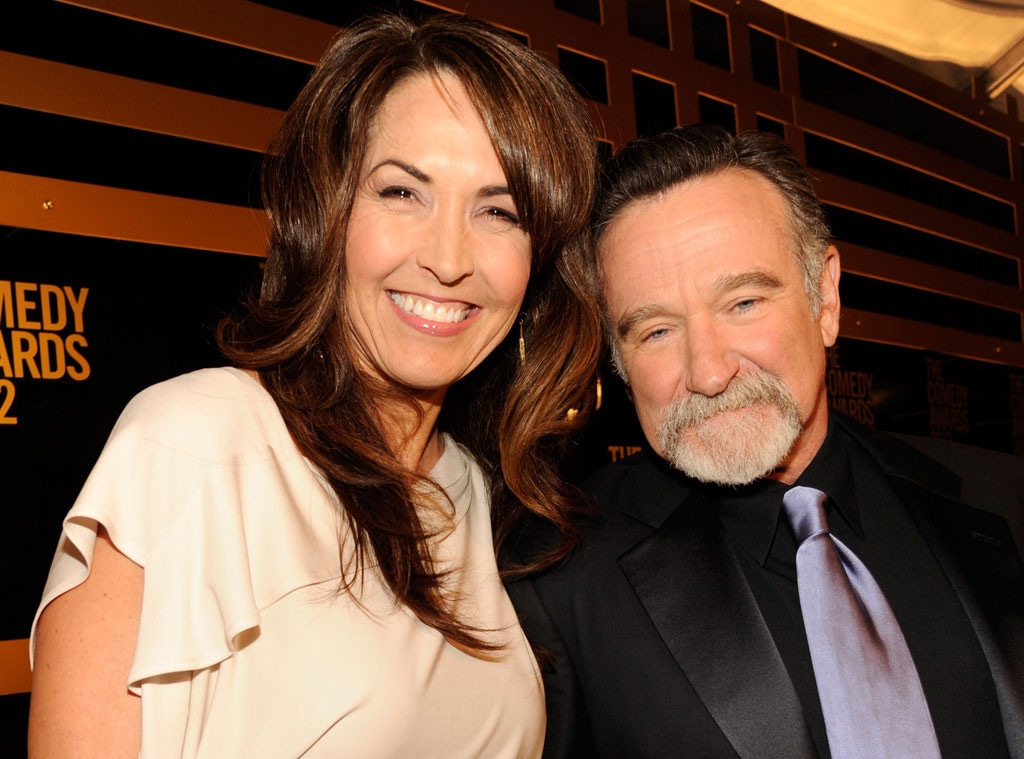 Kevin Mazur/WireImage
Kevin Mazur/WireImageIt has been two years since Robin Williams died, and his widow, Susan Schneider Williams, continues to work to spread awareness of the brain disease that led to his suicide, Lewy Body Disease.
In a heartbreaking essay titled "The Terrorist Inside My Husband's Brain," Susan writes about her late husband's final few months and how the disease that he didn't know he had consumed his life. Sharing that Robin's many symptoms didn't fit any one diagnosis, Susan explains that he had to deal with not only physical limitations such as heartburn and poor sense of smell but also mental incapacitation.
"By wintertime, problems with paranoia, delusions and looping, insomnia, memory, and high cortisol levels—just to name a few—were settling in hard," she writes. "Psychotherapy and other medical help was becoming a constant in trying to manage and solve these seemingly disparate conditions."
But the hardest part, she explains, was when the Aladdin actor couldn't remember his lines while filming Night at the Museum 3. "This loss of memory and inability to control his anxiety was devastating to him," she writes. One month before he died, Robin was diagnosed with Parkinson's Disease, and while he found comfort that there were some answers, he continued to struggle.
"He kept saying, 'I just want to reboot my brain.'" Susan recalls. "When we were in the neurologist's office learning exactly what this meant, Robin had a chance to ask some burning questions. He asked, 'Do I have Alzheimer's? Dementia? Am I schizophrenic?' and when his doctor said 'No,' Robin was unsatisfied."
Although his condition continued to worsen, Susan recalls what would be their final day together—and how it gave her hope that his health would improve. "We did all the things we love on Saturday day and into the evening, it was perfect—like one long date," writes Susan. "By the end of Sunday, I was feeling that he was getting better. When we retired for sleep, in our customary way, my husband said to me, 'Goodnight, my love,' and waited for my familiar reply: 'Goodnight, my love.' His words still echo through my heart today."
She ends the essay by thanking all the doctors and scientists who continue to research LBD. "Thank you for what you have done, and for what you are about to do."